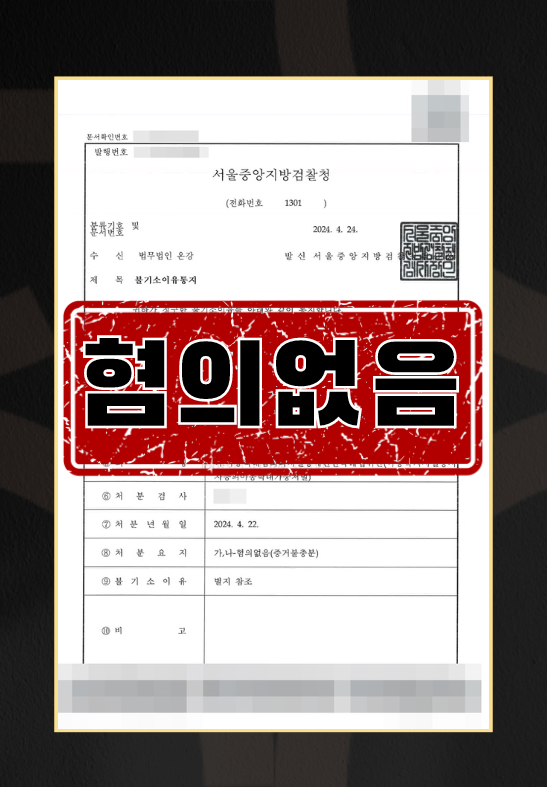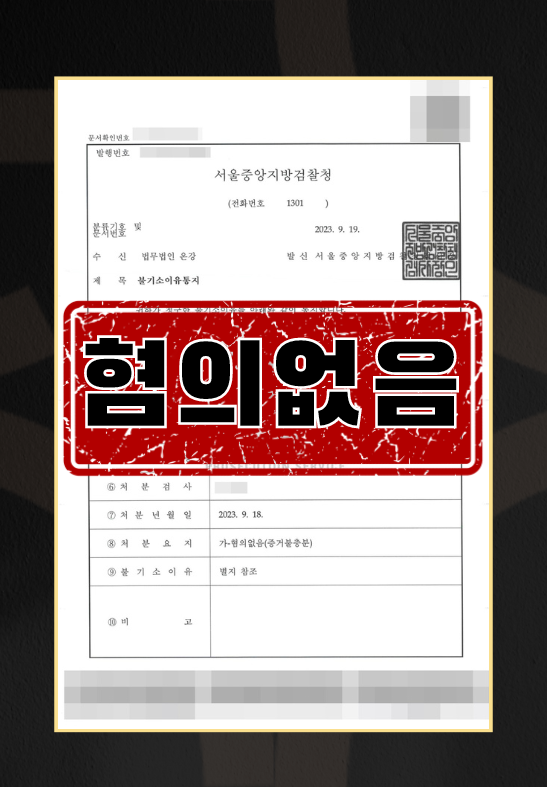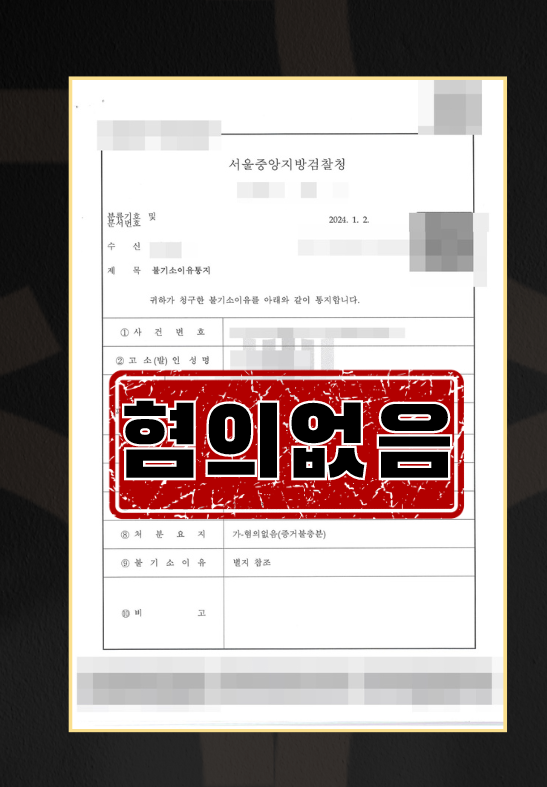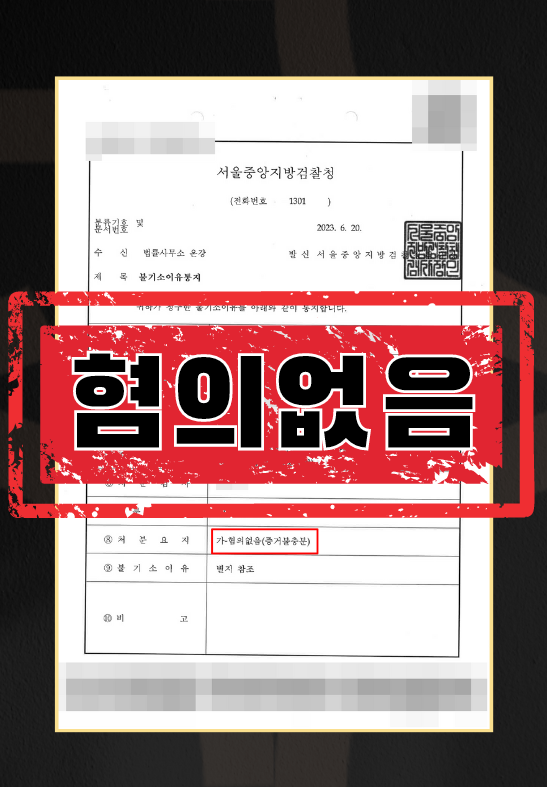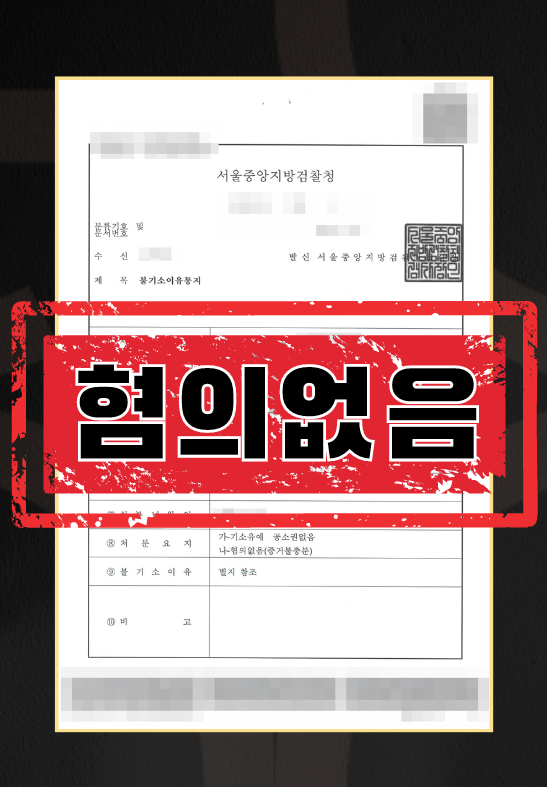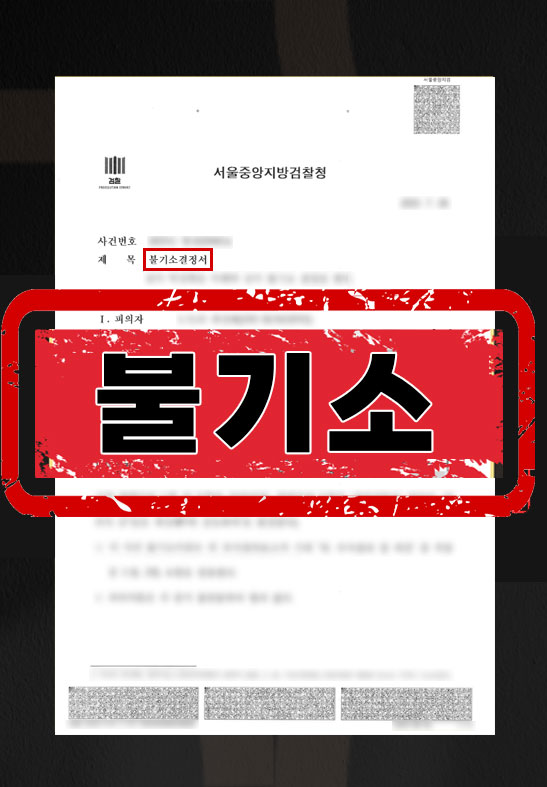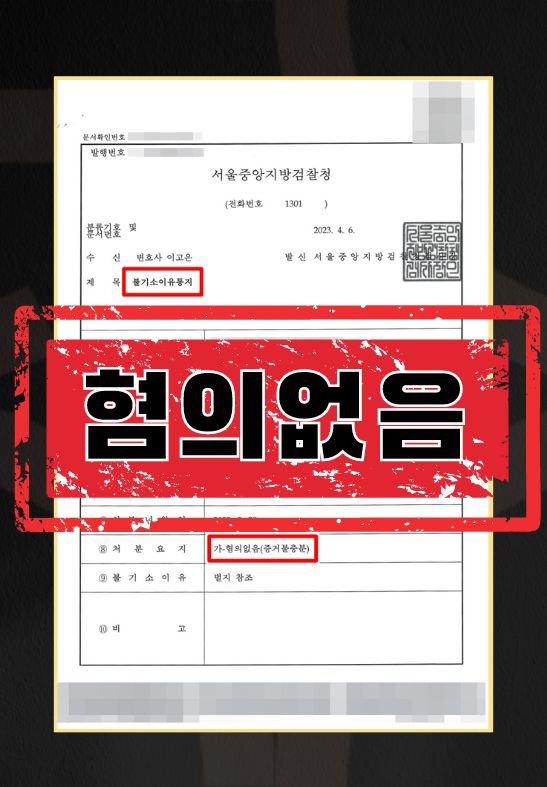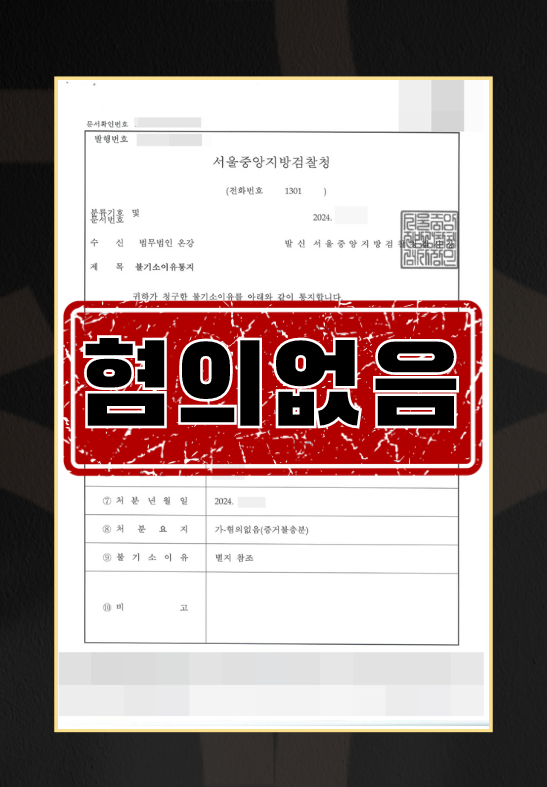
Falsely accusing a relative with delusional disorder of child welfare violations (child abuse)
The client was accused of child abuse by his biological daughter for many years. There were various circumstances, but he decided that it was difficult to solve the case on his own, so he contacted Ongang Law Firm. The client was accused of abusing his biological daughter, the complainant, for many years, and the method and timing of the crime were specific. However, the complainant suffered from mental illness and could not distinguish between reality and forgetfulness, and there were many witnesses, including her husband, during the period of time she claimed to have been abused, so it was necessary to prove that the client's accusation was false by synthesizing these circumstances. Our lawyers collected all of the complainant's medical and sentencing data from the client, and carefully prepared the contents of her statement to the investigating authorities through investigation practice. Afterwards, the lawyers testified together with the defense attorney, and in the defense opinion letter, they explained the complainant's mental history, submitted all of the medical data, and argued that the complainant's accusation of child abuse was due to delusion. The police authorized Law Firm Ongang

